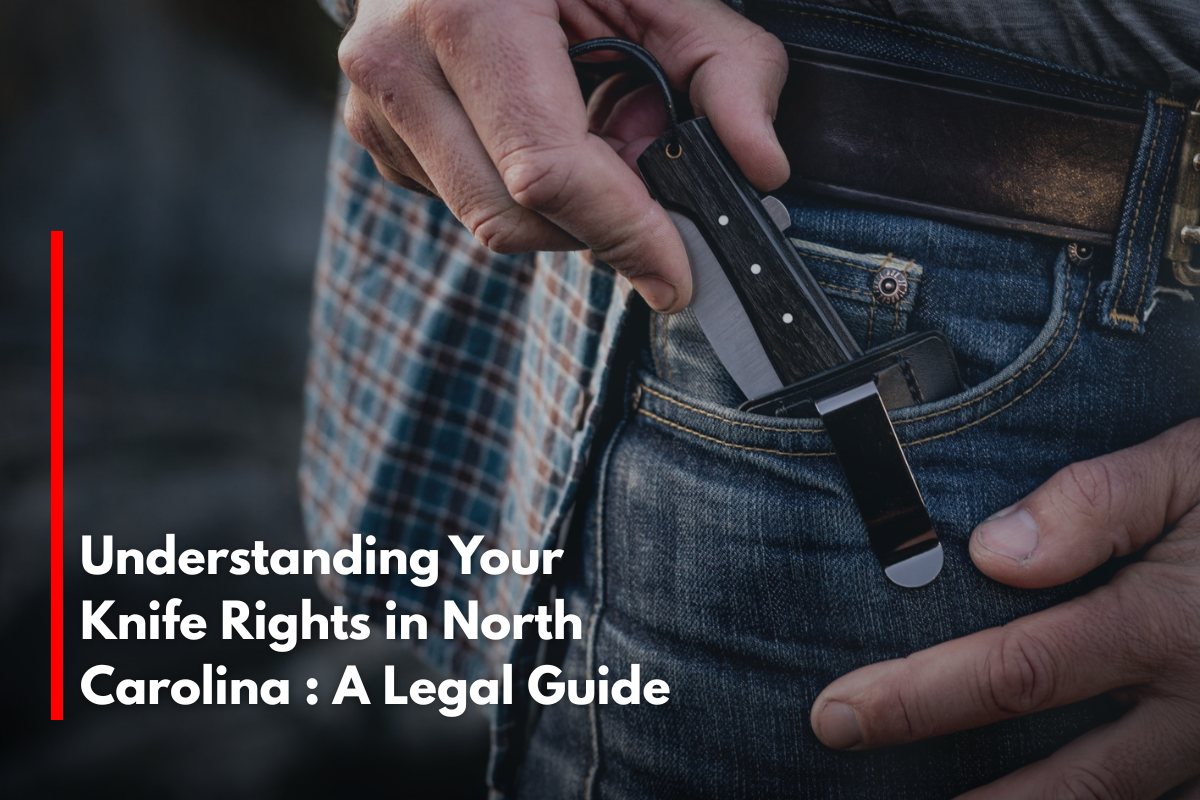North Carolina’s knife laws balance respect for individual rights with concerns for public safety, creating specific rules about what knives you can own, carry openly, or carry concealed. Understanding these laws helps residents and visitors avoid legal trouble while responsibly enjoying knife ownership.
Types of Knives and Ownership Rights
In North Carolina, most types of knives—including common pocket knives, bowie knives, daggers, and dirks—are legal to own without restriction. Restrictions focus primarily on how knives are carried rather than mere possession. Notably, ballistic knives are prohibited for civilian possession and carry, classified as illegal under state law with exceptions only for law enforcement for training or evidentiary purposes.
Open Carry vs. Concealed Carry
The state allows open carry of knives broadly, meaning you can wear or display knives in public spaces openly, regardless of size or style, except for the banned ballistic knives. This means carrying a visible knife in a sheath or belt is legal.
However, concealed carry of certain knives is restricted. North Carolina law prohibits the intentional concealed carrying of bowie knives, dirks, daggers, razors, and other deadly weapons of similar kind, except on one’s own property. This concealed carry ban does not apply to ordinary folding pocket knives with blades under four inches that do not lock, often referred to as “ordinary pocket knives”.
Exceptions and Defenses
There are important legal exceptions allowing concealed carry in certain circumstances. If you are carrying a knife for legitimate activities such as hunting, fishing, farming, or traveling to/from those activities, this can be a valid defense to concealed carry charges. Also, carrying knives on your own property or residence is unrestricted, reflecting the high value placed on private property rights.
Penalties and Legal Consequences
Violating concealed carry restrictions is a Class 2 misdemeanor, punishable by up to 60 days in jail and discretionary fined penalties. Confiscation of prohibited knives upon conviction is mandatory under state law, and knives will not be returned. More serious penalties apply for carrying knives in schools or certain other restricted locations.
Knife Restrictions Involving Minors
North Carolina restricts selling or furnishing certain knives like bowie knives or dirks to minors to prevent access to potentially dangerous weapons. Ordinary pocket knives are exempt from these restrictions, allowing minors to legally own basic folding knives for everyday use.
Proposed Legal Developments
Recent legislation (House Bill 439, 2025 session) seeks to allow the concealed carry of knives by adults 18 and older with valid ID and no felony convictions, under specific conditions. If passed, this could ease current concealed carry restrictions but remains subject to legislative approval and further amendment.
North Carolina knife laws reflect a balance between upholding traditions of lawful knife ownership and carriage while imposing restrictions for public safety. Open carry of knives is largely unrestricted, while concealed carry bans focus on certain deadly weapons but exempt ordinary pocket knives. Knowing the distinctions, respecting location-based restrictions, and staying alert to legal updates are essential for responsible knife ownership and use in the Tar Heel State.
Sources
(https://tkellknives.com/knife-laws-in-north-carolina-your-guide-to-legal-carry/)
(https://www.couteaux-morta.com/en/north-carolina-knife-laws/)
(https://ravencresttactical.com/north-carolina-knife-laws/)
(https://www.akti.org/state-knife-laws/north-carolina/)
(https://www.ncleg.gov/Sessions/2025/Bills/House/PDF/H439v1.pdf)











